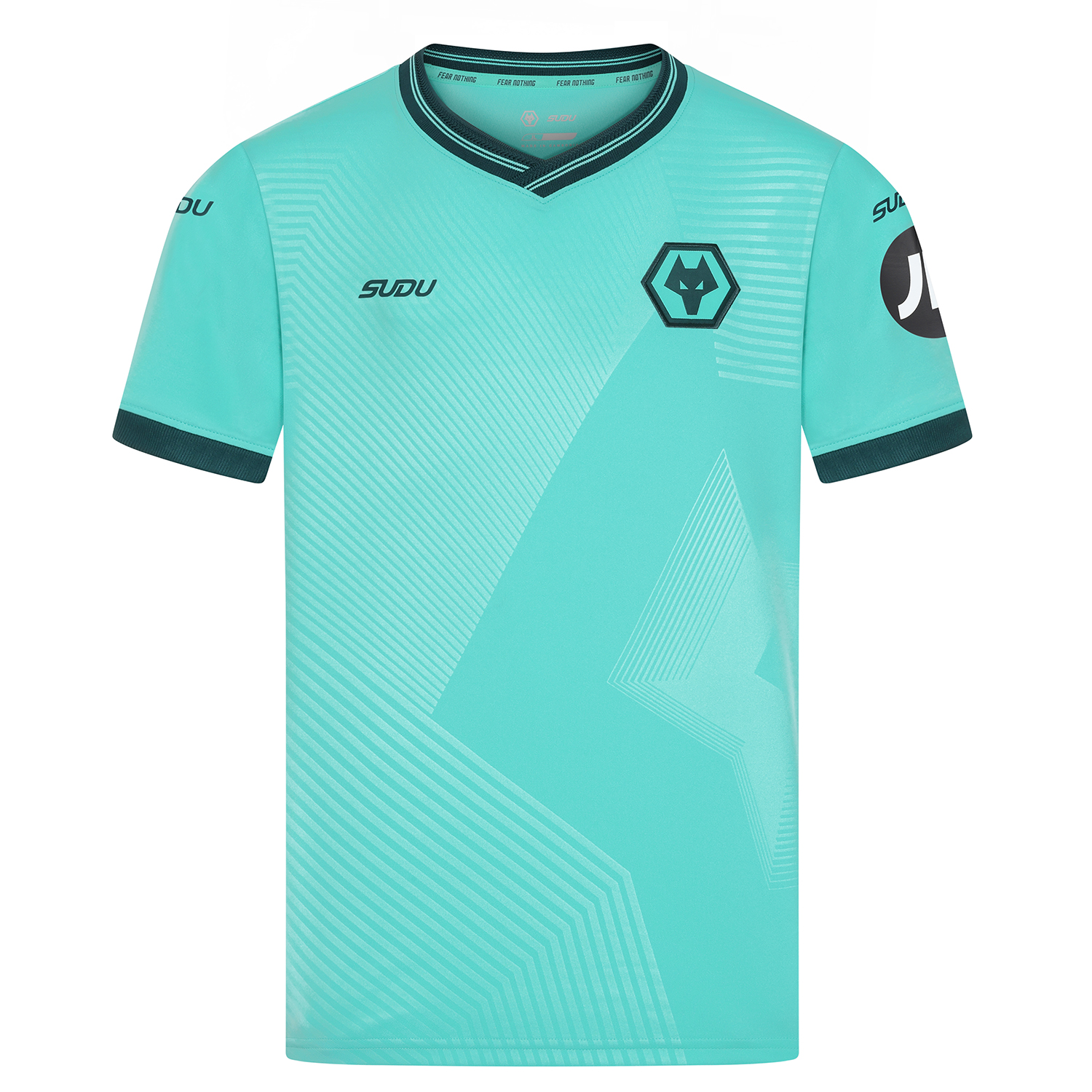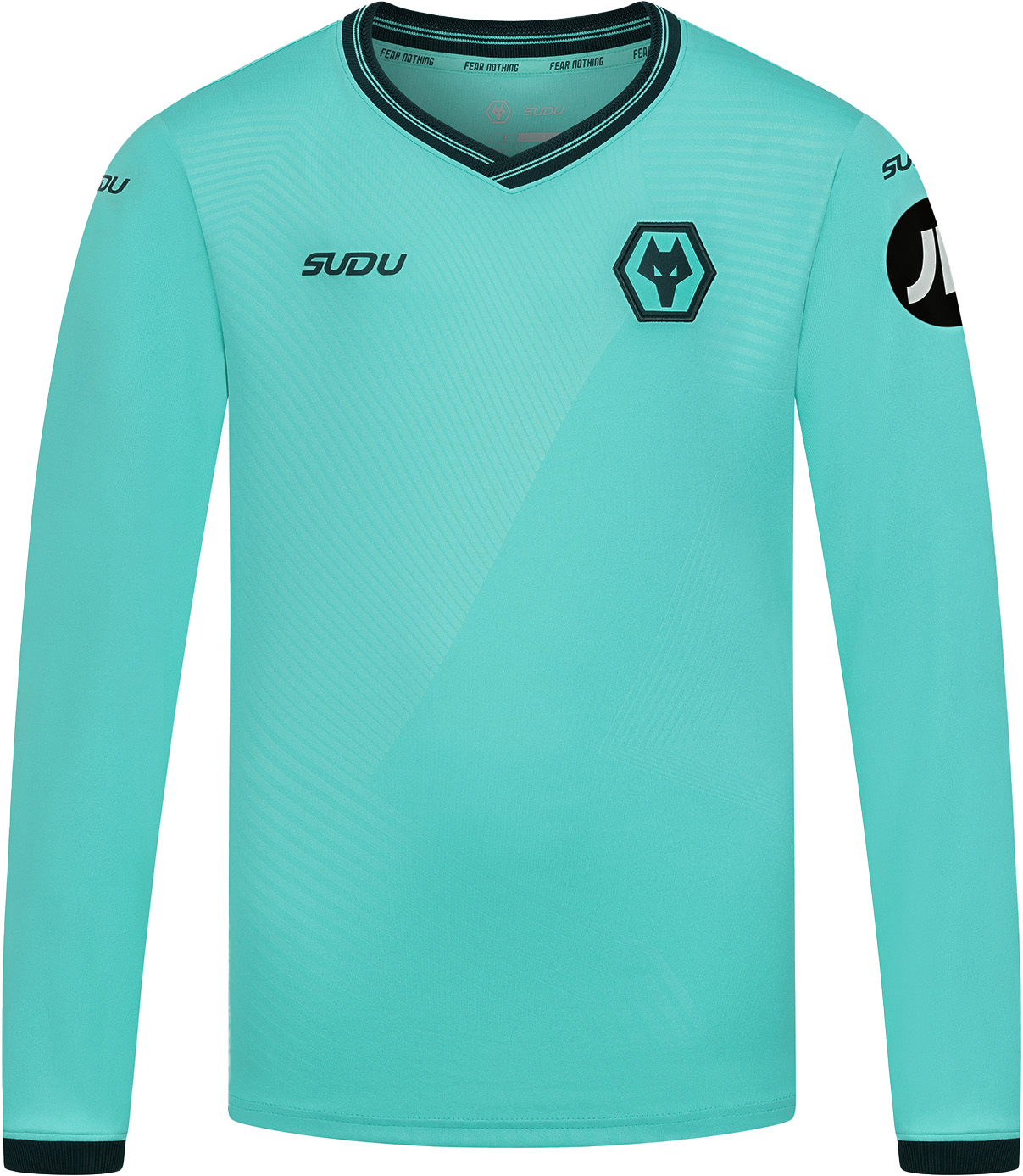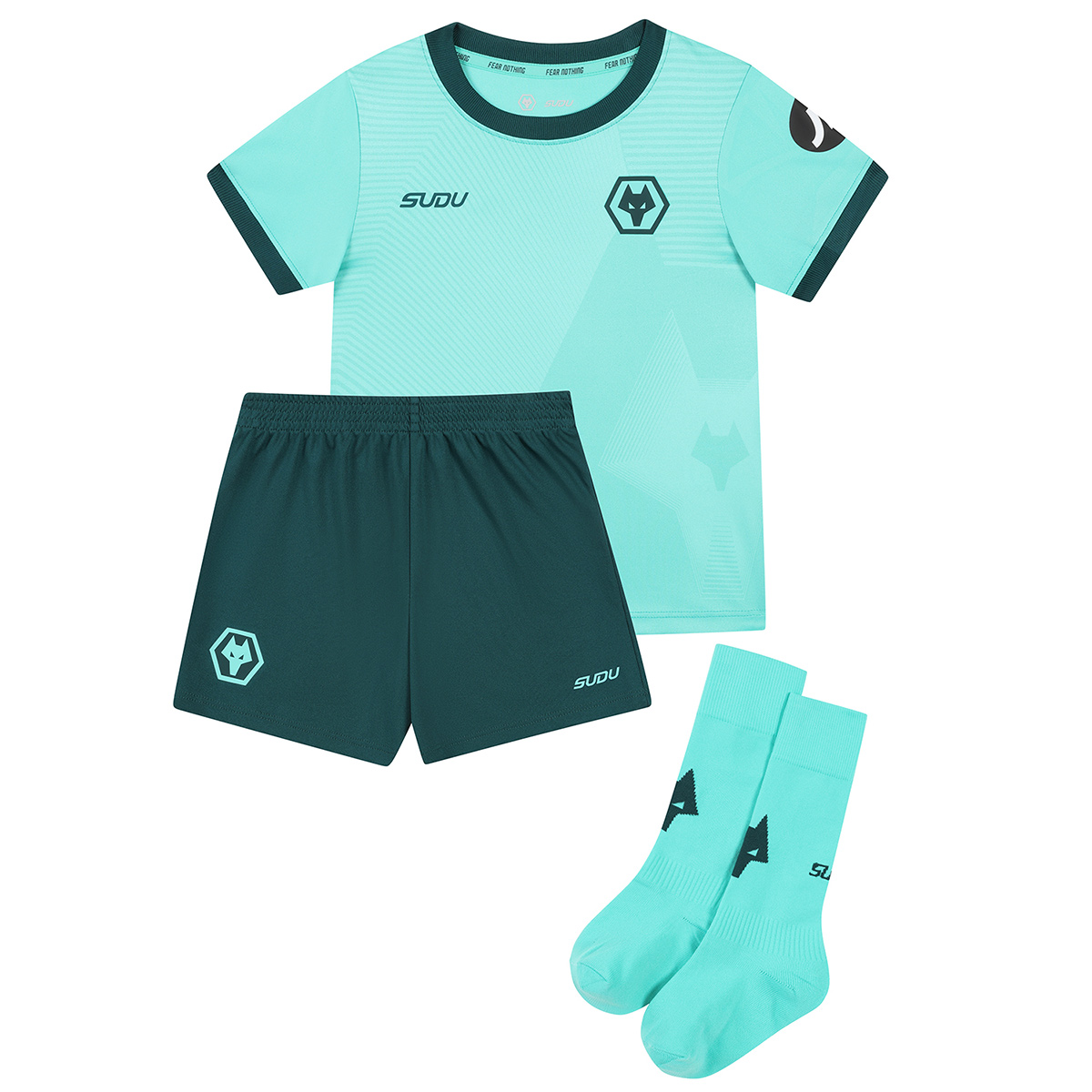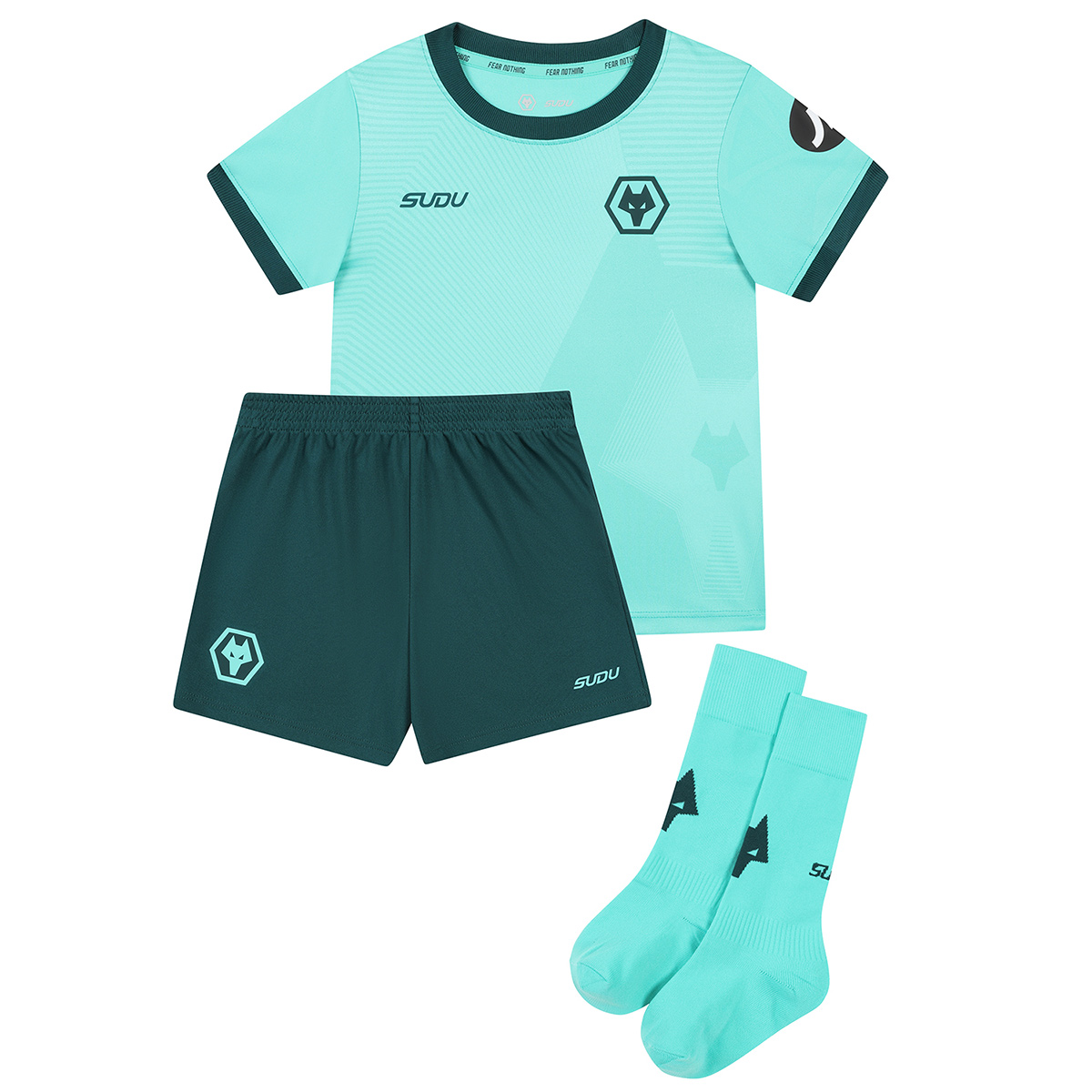But there is also another very strong link between the charity and club, as one of the trustees was instrumental in helping Carl Ikeme, following his diagnosis with leukaemia.
Click here to help support Leukaemia Care through Wolves Lottery!
If Carl had not been diagnosed with leukaemia, chances are he would never have met Manos Nikolousis.
It was Manos who carried out the first series of tests on the former Wolves and Nigeria goalkeeper after he had been referred by Wolves club doctor Matt Perry, and it was Manos who then had to have the first conversation after his diagnosis.
As Carl went through the treatment process, it was Manos who was often the person he would turn to, not just at the hospital where he worked – Heartlands in Birmingham – but also as a source of advice and guidance during the Wolves Academy graduate's gruelling chemotherapy treatment at Christie’s in Manchester.
It was Manos and many other medical professionals based in Birmingham and Manchester who quite literally had the former goalkeeper’s life in his hands, and he has remained a close friend not just of Carl but the whole Ikeme family.
As well as in his professional life as a clinical director of haematology currently now working in Greece, Manos is also a trustee of the Leukaemia Care charity, based in Worcester.
Along with Wolves Foundation, which recently became one of the many charities supported by Wolves Lottery, Leukaemia Care benefits from funds raised by the popular initiative.
Funding helps the charity to deliver vital information, advice and support - not just for patients from diagnosis through treatment for leukaemia - but also their families who understandably feel extremely concerned and want to do everything they can to help their loved ones through the process.
Carl’s story, and the support he received from Manos and everyone else involved from doctors to nurses, and medical staff across the board, left a legacy of care and compassion with the former goalkeeper which he will never, ever forget.
It all began back in the summer of 2017.
“Dr Perry had got in touch to say that one of the Wolves players had low a platelet count which had been picked up as part of their pre-season testing,” Manos recalls.
“Having a low plate count is something you can often see with infections and conditions like glandular fever, and with someone so healthy and active as Carl, you would maybe expect that to be the case.
“We saw Carl to assess him and see what other symptoms were present and I remember he looked really well and it was difficult to believe it was going to be anything serious.
“But there were a couple of things when I examined Carl that triggered further tests which helped us to pick up the disease very early, in its initiation.
“And the fact that he was doing the pre-season blood checks, and that Dr Perry referred him so quickly, was a big help.
“There are several different types of blood cancer, but with each and every one of them, early diagnosis is one of the keys to successful treatment.”
Carl himself is not someone normally prone to visiting the doctors and, given his healthy and active lifestyle, had rarely been under the weather throughout his adult life.
At the age of 31, well into the rigours of pre-season not to mention regular gruelling gym sessions with close friend and former Wolves teammate Matt Murray, he was feeling in very good shape.
“Even after the first blood test I just thought it would end up being some sort of virus or something like that,” Ikeme explains.
“No one in my family had ever had blood cancer and I didn’t know anything about it really and, looking back, I was feeling particularly fit at that time.
“But afterwards, when I think about the symptoms, it all starts to fit together.
“I was having night sweats, some fatigue, a bit of back pain and little marks on my arms.
“Some of it I was putting down to working so hard in pre-season, but I was also getting nose bleeds and bleeding gums when I was brushing my teeth which had never really happened to me before.
“Obviously those symptoms don’t necessarily mean you definitely have blood cancer but putting them all together after the event it presents a clearer picture.
“I am not one of those who really goes to see a doctor, so I’m not even sure when I would have done, and I feel very fortunate to have had that blood test and for the Doc (Perry) to refer me to see Manos in such a short space of time.”
Carl was out buying paint as part of some renovation work at the family home when receiving the call from Dr Perry confirming what he perceived to be a dreaded diagnosis.
“I just thought it was a death sentence,” he recalls, as he wrestled with receiving such shocking and life-threatening nurse alongside how on earth he was going to tell his partner Saba, and his parents and siblings.
He and Saba already had one young daughter – Mila – and the arrival of their second, to be called Maya, was just weeks away.
“I remember that so vividly from when Carl and Saba first came to see me after the diagnosis,” Manos recalls.
“I could see straightaway how heavily pregnant Saba was and that she was close to delivery date.
“Obviously at the time I was thinking primarily about Carl and putting a treatment plan in place but retrospectively you do think what a shocking situation it is when you are trying to piece everything together.
“Couples having families is something which is a normal and wonderful part of life, but when you are just about to have a baby, it is devastating to receive a diagnosis like this.”
Manos told Carl he had a 30 to 40 per cent chance of survival from the diagnosis of ALL (Acute Lymphoblastic Leukaemia).
For most, that might have been a hammer blow, and extremely tough to take. For Carl however, it was motivation.
“When I first took that call about my diagnosis I thought I was gone, finished,” he explains.
“So as soon as I heard that prognosis, and knew I had a chance, I was ready for what was ahead.
“Manos then started talking through the options and that gave me a boost – it was comforting to know how things were going to work with the treatment.
“Being in Manos’s company, it must be difficult for him because he wants to keep you positive but he has to be real with you at the same time.
“We had so many questions for him, not just from myself but Saba and my Mum, and straightaway he started to go above and beyond in what he did both for me and for my family.
“After the initial shock and the initial upset, I just wanted to get on with the treatment and get on with the process of trying to get better.
“Everyone else kept on asking Manos questions, and I almost had to tell them to stop harassing him!
“But that is Manos, he is always there, always at the end of the phone wanting to help.
“We had so much going on at the time, Saba just two weeks away from having our second daughter, and to know he was there and could ease any fears was so important.”
It is in supporting patients as well as families that the Leukaemia Care charity plays such a pivotal role.
They provide emotional and practical support both to the patient and their carers and families, who can often carry so much strain when a loved one has been diagnosed with blood cancer.
“I joined Leukaemia Care as a trustee about seven years ago, and it is such an important charity which is focused heavily on what is best for patients,” Manos explains.
“It is about how we can ease the path for patients on their journey through this awful disease, and also support their families.
“Just as one example, on any day when patients come to see me I may have quite a long list, and am only able to spend maybe 20 to 30 minutes with each patient.
“That will usually centre about discussions about the treatment process, but there is so much more involved in a cancer diagnosis such as the social aspects, the family aspects, everything else which might be affected for the patient.
“Leukaemia Care helped to create hubs within hospitals where patients can go after they have been in the consulting rooms and have other questions answered by specialist nurses.
“In this environment the nurses can go through a process of holistic care and cover more issues around the disease than the consultant, and provide the help and support needed when people are going through such a difficult and life-changing experience.
“Leukaemia Care is such a great charity and funding is so important which is why we are so grateful to everyone involved in Wolves Lottery for their fantastic support.”
Backed by that support in the form of fundraising, Leukaemia Care has also been at the forefront of many other initiatives to improve the prognosis for patients including a ‘Spot Leukaemia’ campaign focused on raising awareness of the symptoms of the disease not just for the general public but also those within the medical profession.
The charity also contributes substantially to the education of staff around blood cancer, including funding training courses and education for nurses to improve their knowledge.
“Having been through it all myself I have seen just how important it is to put the care of patients at the centre of the treatment,” adds Carl.
“It is all about looking at what a patient needs, how their lives can be made more comfortable in the situation, to help with what they are going through.
“Treatment is treatment - at the end of the day I am not sure that will ever change massively from patient to patient.
“But focusing on the individual, the support they need or what their family might need, that is crucial.
“It is what Manos and everyone at Ward 19 did for me while I was at Heartlands including when I had sepsis and was taken in after becoming seriously ill when I had come back home for a weekend in between my chemotherapy.
“And the thing about Manos is that he always has time for people – it’s not just me, he is exactly the same with all of his patients.
“It extends on to after the treatment as well, as even then there are sometimes issues with your counts or other areas you might be concerned about and he is always there and available to put patients’ minds at ease.”
During what was almost a year of treatment largely at Christie’s there were many dark and difficult days and nights for Carl, including the sepsis which left him temporarily losing his sight and the inevitable mental strains which saw him turn more and more to an already-established belief in spirituality.
His network of close family – an increased family after Saba gave birth to Maya – and close friends were there every step of the way, along with Manos and so many others within the medical profession both at Heartlands and Christie’s.
The painful and gruelling challenges he endured during the treatment process form part of Carl’s book – Why Not Me? – which he penned following his recovery in order to try and help others in the same position to realise that there can be light at the end of the tunnel.
And it is now three years from June 23rd 2018, the date Carl announced he was in remission from leukaemia.
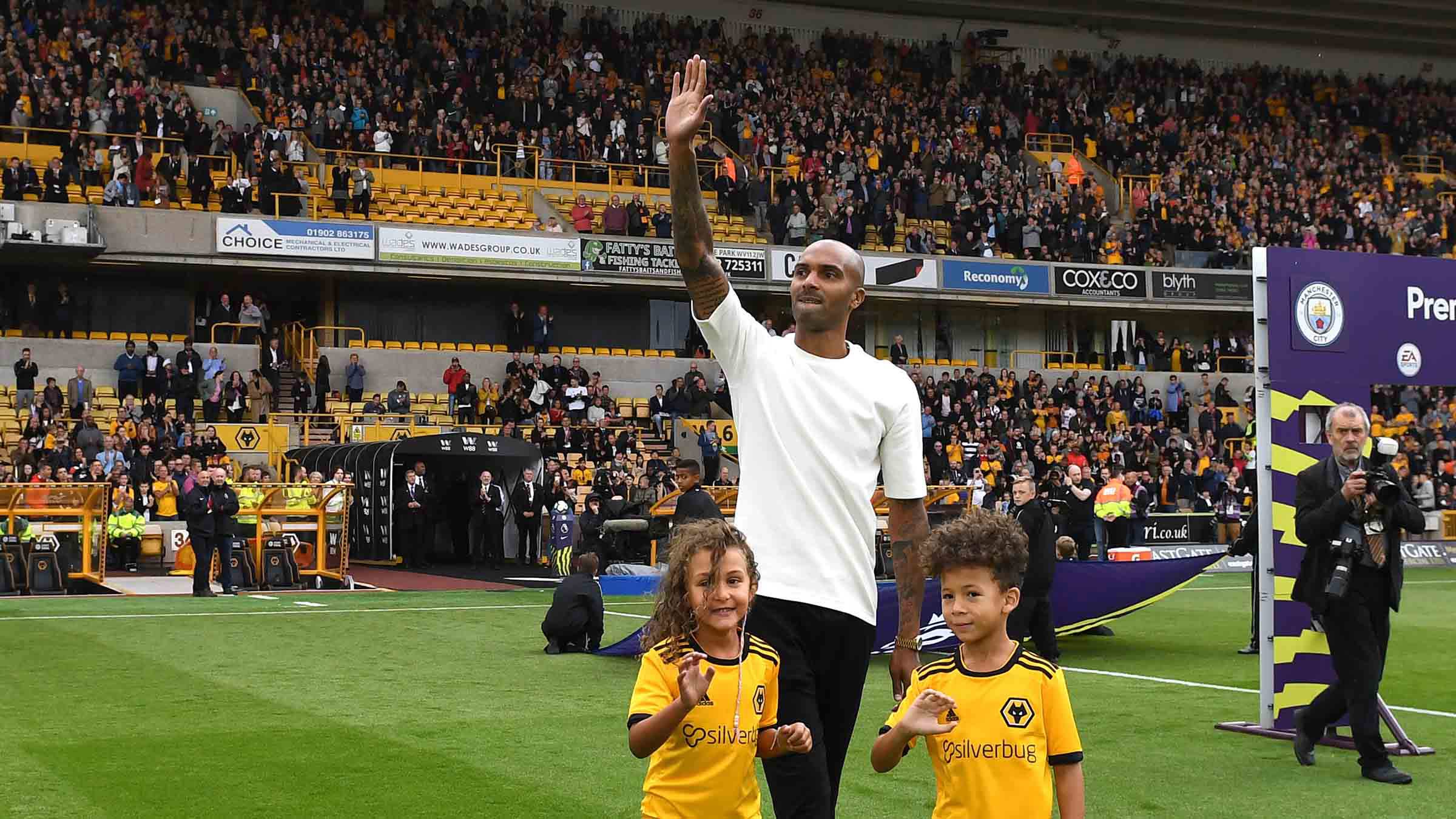
Retirement from football followed soon afterwards, but, while the treatment process has continued since that date, he now feels back to his previous levels of fitness, enjoying not only the joys of family life but once again the mental and physical benefits of pushing himself in the gym.
Manos too is delighted to have seen Carl make such good progress and admits he is one of the many patients who continues to inspire.
“Carl has been astonishing – treatment for a disease like this takes place over a long period, a marathon not a sprint, and all the way through he has been focused on every single step.
“Although talking about a marathon, I cannot forget how Carl absolutely smashed me on the Birmingham Velo when we were raising money for Ward 19!
“It was such a lovely team on Ward 19, like a family, a group of doctors, nurses and pharmacists who worked together to help their patients and for me it was a real honour and privilege to work with them.
“Carl was one of those patients who would set an example.
“He was a very well-known person who a lot of people knew but it was the way he approached this disease in such a clear and focused way which stood out.
“It was also how he would help other patients which he did many times by visiting them and talking to them, which was also so important.”
For Manos, the work goes on, and in what is hopefully a hugely positive co-incidence a 16-year-old old patient called Marcos who was diagnosed with exactly the same disease – but also including 13 bleeds on the brain – was discharged in remission… on Carl's birthday at the start of this month.
For Carl meanwhile, the anniversary of his remission date is perhaps not one he will spend too much time thinking about, with his attitude focused more on the overall journey he went through with leukaemia, and what more he can do to help others who find themselves in a similar position.
“I know people might talk about anniversaries and things can pop up on social media but it’s not something I think about too much,” he explains.
“For me it is more about getting on with life, and I am the sort of person who will always try and put a positive spin on things anyway.
“Sometimes the whole process feels like a long time ago - sometimes it feels more recent - and sometimes it doesn’t even feel like it was me, especially the initial part.
“I do sometimes look back and think about what I went through and that whole process, but mainly to reflect on what it gave me in terms of my perspective on life.
“The book was something I wanted to do to try and raise awareness and support people and doing talks or sending messages to patients and generally just trying to help will be my calling for a long time.
“Because of everything that happened, I will always be around the world of leukaemia, but I genuinely don’t look back with any sadness.
“Obviously, if you had given me a choice, I would never have wanted to have the disease, or go through what I did, but I certainly don’t regret it or feel angry or bitter.
“As the title of the book says, ‘Why Not Me?’ I had been blessed to have such a happy life, and still do, but why shouldn’t I be one of those people who are diagnosed with cancer?
“I just feel fortunate and thankful that I am still here, three years into remission feeling good and feeling healthy, and that is the main thing I take from it at the moment.
“That gratitude is a feeling I will never let myself forget and has helped to put me in a place where I really want to be.”
Click here to find out more about Leukaemia Care.














